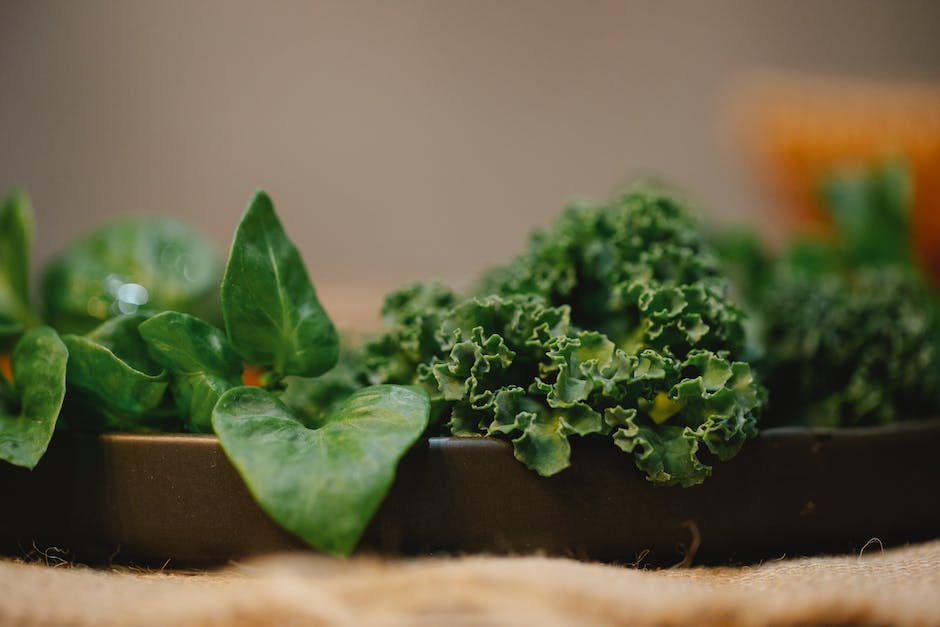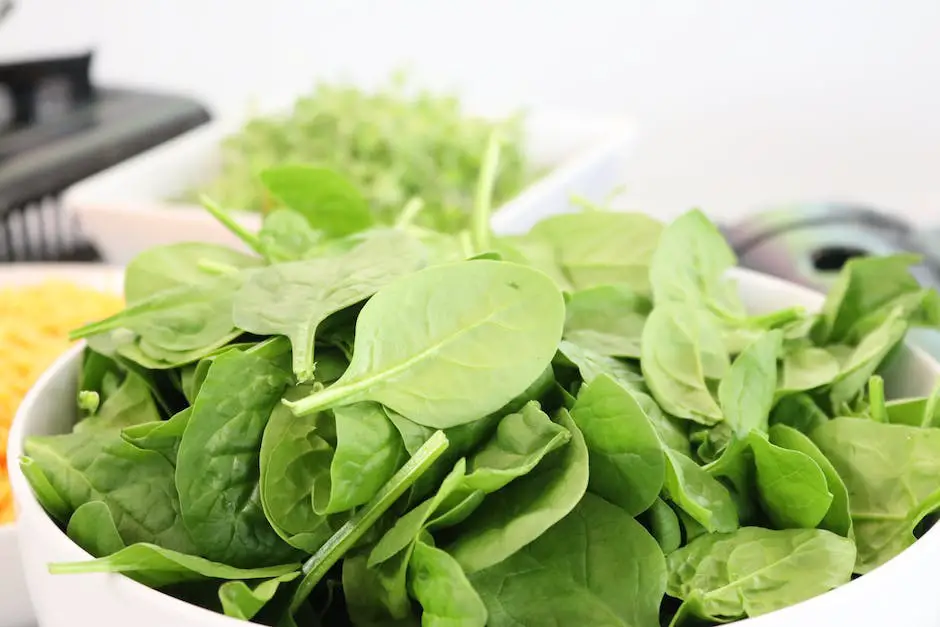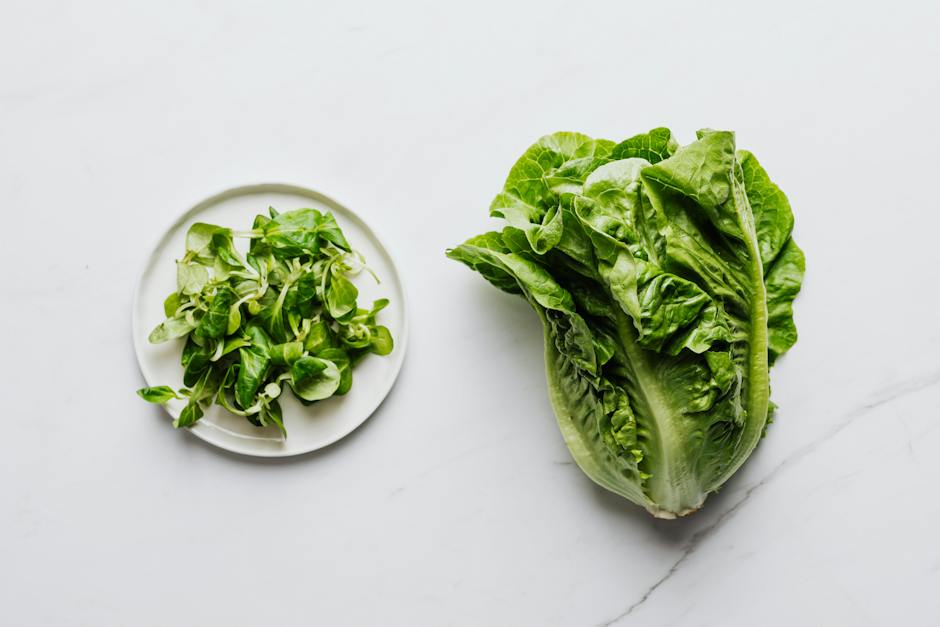As an immensely nutritious, low-calorie, and simple-to-prepare leafy green, spinach is often hailed as a superfood for both health and fertility. This green is stocked with several essential vitamins and minerals conducting multiple biological roles in improving reproductive function in both men and women.
Perhaps lesser known is its impressive potential for boosting fertility and promoting a healthy pregnancy which led to put down this piece as an encouragement to those trying to conceive to consider spinach a hero capable of increasing their chances of conception.
Through a variety of key elements like folate for a healthy ovulation cycle, iron to support optimal menstruation, and a whole load of other vitamins, spinach may prove to be an unsung hero in a woman’s fertility journey, warranting a closer look.
Whether you’re planning a pregnancy, already expecting, or just seeking overall wellness, the wealth of health benefits spinach has to offer, along with advice on incorporating it into your meals and understanding any potential concerns, could be very valuable.
The Power of Spinach for Fertility Health
Spinach is long regarded Superfood for Boosting Women’s Fertility
If we were to take a poll of favorite vegetables, it’s unlikely spinach would top the list! However, this green powerhouse has an impressive capability that deserves some spotlight, especially for those trying to grow their families. Let’s delve into just how spinach positively affects fertility in women.
To begin with, spinach is brimming with iron, an essential mineral vital to fertility health. Spinach supplies a quarter of the daily recommended intake of iron per serving! Low iron levels can lead to anovulation, where the body may not produce an egg during the menstrual cycle. By adding spinach to meals, the iron boost can help ensure a regular ovulation cycle.
Next, spinach is abundant in folic acid or folate. Did you know that a folate deficiency can lead to a higher risk of congenital disabilities in the baby? Spinach generously provides the required folate to enhance the health of women during conception and pregnancy. Folic acid also increases the production of mature eggs in the ovaries, thereby creating more opportunities for pregnancy.
Moreover, spinach’s high vitamin content adds another star to its ranking. It is loaded with essential vitamins like Vitamin E, C, and B6, along with a few other key fertility-promoting nutrients. These vitamins stimulate the production of sex hormones, stabilize menstrual cycles, and can even improve the quality of the eggs.
Spinach also happens to be a top source of magnesium, another vital nutrient for fertility. Magnesium helps to regulate levels of progesterone, a key hormone for successful conception and pregnancy. So ladies, a spinach salad, spinach smoothie, or even a side dish of spinach ensures a healthy magnesium supply!
Last but certainly not least, spinach is packed with antioxidants. These tiny helpers fight against harmful free radicals in the body and are great for overall health. If the body is in better health, so too are fertility outcomes.
So there we have it, five compelling reasons why spinach is the superhero of fertility-enhancing vegetables! Spinach might not receive the most love but, its wealth in fertility benefits is truly impressive. Whether it’s youthfully fresh or delightfully wilted, it’s time to introduce spinach into meals and lives. This humble green leafy might be the game changer in the fertility journey! Spinach for the win – or rather, Spinach for the ‘twin’!
Keep in mind that while spinach has numerous potential benefits, it’s only a part of a balanced diet and holistic approach to health. It’s always encouraged to consult with your doctor or a health professional before making big changes to your diet, especially when related to fertility. Here’s to delicious, nutritious meals and a future of healthy, happy families.

Spinach Impact on Pregnancy
Who pregnant women eat spinach? Although the safety of this superfood is yet to be determined by any scientific studies, spinach has the potential to benefit the pregnancy journey.
Continuing from where we left off, let’s delve more thoughtfully into spinach, that leafy superhero sitting right there in your kitchen. Often overlooked, spinach can provide a powerhouse of significant nutrients, proving to be an excellent addition to your pregnancy diet.
You already know spinach is a fantastic source of iron, folate, and essential vitamins, playing pivotal roles in conception and fertility. But this humble green vegetable doesn’t stop impressing us just there. Being low in calories and high in nutrients, it holds the secret to healthier pregnancies, healthier mothers, and ultimately, healthier babies.
Want to hear something incredible? This simple yet sturdy plant is brimming with calcium – another key player for a healthy pregnancy. This mineral plays a crucial role in the development of the baby’s bones, heart, nerves, and muscles.
A deficiency may lead to complications like pre-eclampsia or bone loss in moms-to-be. The calcium in spinach is easily absorbed by our bodies, reaching right where it matters, strengthening both you and the little one growing inside you.
Perhaps less expected, but just as beneficial, is the presence of fiber in spinach. The discomfort of constipation is all too common in pregnancy due to hormonal changes. Incorporating spinach into your diet, with its rich fiber content, can help keep everything moving as it should. It’s nature’s remedy for an issue that affects countless expectant mothers, helping you to stay comfortable and positive during your journey.
Moving along, let’s give the stage to spinach’s high content of Vitamin A, known for its role in the visual system and immune function. It’s particularly beneficial in the third trimester, promoting growth and health in your baby, and giving your immune system a boost when it’s working overtime for two.
Spinach also packs a punch with omega-3 fatty acids – yes, the very same found in fish oil! Research shows that these powerhouse fats are crucial for your baby’s brain development. Adding some spinach to your salad or smoothie is a wonderful way to secure these benefits, especially if you’re not keen on fish.
But there’s more; spinach is rich in an antioxidant known as zeaxanthin, which together with lutein, another antioxidant found in spinach, aids eye health for both mom and baby.
In essence, spinach isn’t just a fertility-boosting gem, but also a supportive pal throughout your pregnancy journey. So, whether you’re in the pre-conception period or already basking in the glow of pregnancy, this hardworking vegetable can be a game-changer.
Of course, as with any dietary changes during this sensitive time, please remember to consult your healthcare provider or a registered dietitian. Ensure that the spinach you consume is thoroughly washed to remove any traces of pesticides and bacteria that may harm you or your baby. Also, remember that while spinach is an excellent source of nutrients, it’s essential to have a balanced, diverse diet to meet all your pregnancy nutrition needs.
Turn to spinach, your buttress of strength, vitality, and overall well-being as you navigate this thrilling journey of creating new life.

Incorporating Spinach in Your Diet: Tips and Recipes
Now that we have reviewed the impressive array of nutrients spinach contributes to fertility and pregnancy health, let’s talk about how to incorporate this leafy green into your meals deliciously.
An easy and tasty approach is to use spinach in smoothies. Spinach pairs well with fruits such as bananas, mangoes, or berries, and because of its mild taste, it won’t overpower the sweet fruity flavors. Pair it with Greek yogurt for added protein, or a plant-based milk like almond or oat for a vegan-friendly version. Throw in some chia or flax seeds for an Omega-3 boost and you’ve got a nutrient-packed smoothie that’s both satisfying and beneficial.
Salads are another great way to consume spinach. Unlike some other leafy greens, spinach is tender and palatable raw. You can create a simple salad with fresh strawberries, goat cheese, spinach, and a drizzle of balsamic vinaigrette. This salad packs a punch of Vitamin C from the strawberries, which also helps with the absorption of iron from the spinach.
Spinach can also be included in pasta sauces or casseroles. Consider making a creamy spinach and mushroom pasta or a quinoa-spinach bake. Both of these options are hearty, satisfying, and a great way to sneak in lots of spinach.
For baking enthusiasts, spinach can be included in muffins, bread, or even pancakes. This might sound unusual, but when it is finely chopped or pureed, the taste of spinach in baked goods is almost unnoticeable. Furthermore, it gives your baked goods a fun, vibrant green color!
Don’t forget to include spinach in your stir-fries and wraps. A chicken, avocado, and spinach wrap can make a nutritious lunch. Similarly, a shrimp and spinach stir fry could make a protein-packed, flavor-filled dinner.
Last but not least, the longstanding favorite, spinach and cheese stuffed chicken, is a tasty entrée that will make even those resistant to greens reach for seconds. This dish packs in high-quality protein from the chicken, while the cheese adds a touch of indulgence that goes perfectly with the healthy spinach stuffing.
Remember, variety is key in any balanced diet. While spinach is a wonderful, nutrient-dense addition, it doesn’t negate the need for other fruits, vegetables, and wholesome foods. Always make sure your meals are diverse and colorful, and always consult with a healthcare professional when making dietary changes.
Treat yourself to the delicious flavors and fertility-supporting nutrition of spinach by incorporating it into your meals in a multitude of delicious ways. Enjoy those tasty dishes and relish the fact that you’re nourishing your body with every bite.
Safety and Concerns: Is There Such a Thing as Too Much Spinach?
While spinach is undoubtedly nutritious and beneficial, excessive consumption can also bring about certain concerns.
Let’s take a bite into the potential dangers associated with eating too much spinach.
Overindulgence in spinach could lead to a condition called hyperoxaluria.
Oxalates are compounds found in some foods, including spinach, and our body naturally produces them as a waste product.
They are normally eliminated from our body through the urine.
However, when there is an excessive accumulation, they can form crystals leading to kidney stones.
Furthermore, spinach is high in Vitamin K, which aids in blood clotting.
While this is typically a good thing, it may interfere with blood thinners.
So those on medications such as warfarin may want to moderate their consumption to maintain consistent Vitamin K intake.
Always consult a healthcare provider before making significant dietary changes, especially when on medication.
It might surprise some to know that consuming too much spinach can lead to a dip in calcium absorption.
The oxalates in spinach don’t just contribute to kidney stones but can also bind to calcium and prevent it from being absorbed into our bodies.
Lastly, spinach is indeed an abundant source of iron, but the irony is that it also contains compounds known as oxalates which inhibit iron absorption.
So, relying solely on spinach to meet your iron needs isn’t the best strategy.
You might want to toss in foods like beans, legumes, and lean meats in your diet, which provide non-heme iron less affected by oxalates.
This is where the importance of a balanced and diverse diet comes into play.
Including a variety of vegetables in your meal plans is a way to ensure you’re getting a wide range of nutrients without overloading on a single one.
Remember, while spinach works wonders, don’t let Popeye fool you into thinking it’s the only veggie superhero in town!
Wondering whether you have been overdoing spinach and how much is too much?
It’s always a good idea to consult with a healthcare professional.
They can provide individualized insight based on your health and lifestyle.
Enjoy your greens, relish your meals, and celebrate the journey of maintaining a healthy lifestyle balanced with nutrition.
After all, it’s not just about what we serve on our plates, but the love and nourishment we dish out in everyday life.

Conclusion
Whether for fertility, pregnancy, or general health, spinach, with an abundance of nutritional benefits, has proved its worth as an important part of a balanced diet.
Its rich content of iron and folate – two essential nutrients that support the ovulation process, menstrual cycle, and a healthy pregnancy – makes it perfect to eat while planning or during gestation.
Creative recipes and handy preparation tips can help you add this wonderful green to your everyday menu. However, like everything else, spinach should be consumed in moderation, mindful of its potential side effects of excessive intake.
With its impressive nutritional profile, flexibility in cooking, and the knowledge to balance its intake, spinach may well become your valuable ally in your journey to fertility and beyond.
Discover more from Fertilitylens
Subscribe to get the latest posts sent to your email.











